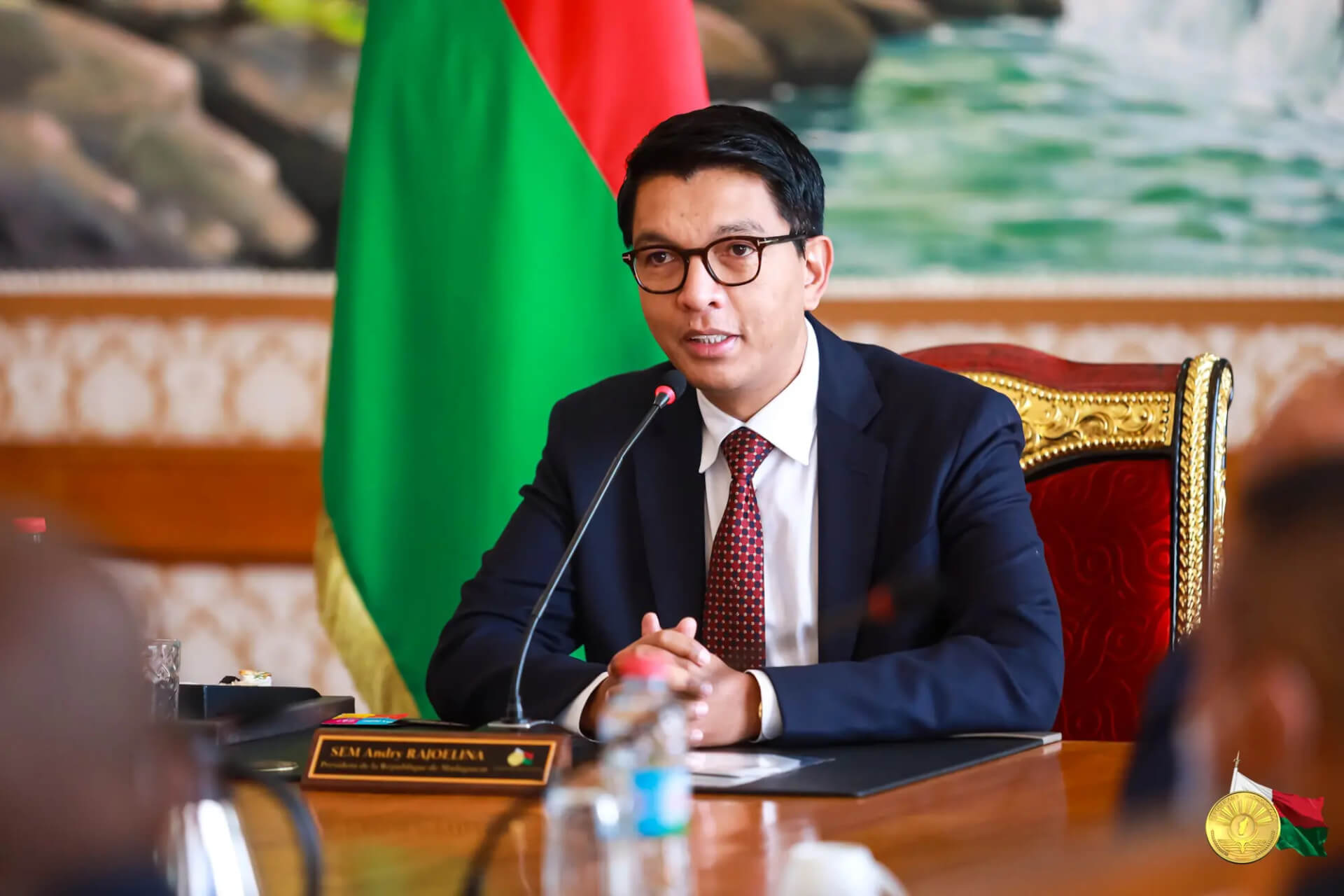South Asia
Pakistani Finance Minister Ishaq Dar said he has informed the United States that Pakistan is considering purchasing discounted Russian oil, provided the terms are not “worse than India’s.” Making his first address since his appointment, he said while in Washington that Islamabad will not “beg” the International Monetary Fund or other countries for flood relief. [The Express Tribune]
The Indian government acknowledged the World Bank’s announcement to appoint a Neutral Expert and a Chair of the Court of Arbitration on the Kishenganga and Ratle projects, reaffirming its support for the Indus Water Treaty. The World Bank made the appointments earlier this week in a bid to resolve the disagreement between India and Pakistan over the technical design of the two hydroelectric plants. The two arch-rivals signed the treaty in 1960 to resolve any disputes on projects along the Indus River. [Indian Ministry of External Affairs, World Bank]
Central Asia and the Caucasus
Armenia is set to purchase weapon systems from India, including Akash surface-to-air missiles, and drones. Indian and Armenian Defence Ministers—Rajnath Singh and Suren Papikyan—agreed to the deal on the sidelines of the ‘DefExpo 22’ in Gandhinagar on Tuesday. [The Print]
Ukrainian President Volodymyr Zelensky has signed a decree to dismiss Petro Vrublevskiy as the country’s ambassador to Kazakhstan over his anti-Russia comments. In August, Vrublevskiy told a Kazakh blogger, “The more Russians we kill now, the fewer of them our children will have to kill in the future.” His remarks led to furious reactions in Kazakhstan and Russia, with Astana demanding that the Ukrainian government expel the envoy. [RFE/RL]
East and Southeast Asia
Indonesia announced a ban on the sale of all syrup and liquid medication in the country after almost 100 children died from acute kidney injury this year. Health Ministry spokesperson Syahril Mansyur said, “As a precaution, the ministry has asked all health workers in health facilities not to prescribe liquid medicine or syrup temporarily… we also asked drug stores to temporarily stop non-prescription liquid medicine or syrup sales until the investigation is completed.” The measure comes just days after the World Health Organization linked at least deaths of at least 69 children in the Gambia from acute kidney illnesses to cough syrups produced in India; it has not been confirmed whether Indonesia has also been facing issues with India-made medicines. [Borneo Bulletin]
Speaking to the Swedish parliament on his first day in office, newly-elected Prime Minister Ulf Kristersson said relations with China “should be anchored in a common European strategy with a clear transatlantic link.” Referring to Taiwan, he said that his administration “will not tolerate aggressive states that intervene in a democratic country’s freedom and sovereignty.” [Taiwan News]
Europe
The International Centre of Justice for Palestine, a United Kingdom-based Palestinian rights group, warned that it would file a judicial review if the British government shifts its embassy in Israel from Tel Aviv to Jerusalem. British Prime Minister (PM) Liz Truss told Israeli PM Yair Lapid last month that she has been considering shifting the embassy and in August described herself as a “huge Zionist” and “supporter of Israel.” [Al Jazeera]
The Netherlands pulled out of the European Commission’s Energy Charter Treaty, saying that it has not yet been made compatible with the 2015 Paris Agreement and its commitments on climate action. The decision closely follows Spain’s withdrawal from the treaty. Italy pulled out of the treaty in 2016, while Poland has begun formal discussions to do so as well. [Euractiv]
Ukrainian President Volodymyr Zelensky met with Greek Minister of Foreign Affairs Nikos Dendias in Kyiv on Wednesday to discuss “strengthening support for Ukraine and sanctions pressure on Russia, as well as ensuring a tough consolidated response of the international community” against Russian war crimes. Meanwhile, Dendias stressed that “Greece remains resolute in its unwavering solidarity with Ukraine and fully condemns any attempt to change the borders by the revisionist forces.” [President of Ukraine, Greek City Times]
Latin America and the Caribbean
Haiti has now confirmed at least 66 cases of cholera, with over 600 more suspected cases as well. The outbreak has been exacerbated by a gang blockade at a fuel terminal, which has interrupted the supply of both fuel and clean drinking water. Hospitals are also under-resourced and understaffed. United Nations Secretary-General António Guterres has called it an “absolutely nightmarish” situation. [AFP]
Cuban Deputy Foreign Minister Carlos de Cossio has downplayed the United States’ (US) decision to answer Cuba’s call for humanitarian aid to combat the impact of Hurricane Ian, which left much of the island nation without power. De Cossio noted that the US’ blockade alone costs Cuba $15 million every day, meaning that the US’ delivery of $2 million does little to offset the impact of a “brutal policy that burdens every Cuban and is repudiated by the international community almost unanimously.” [Cuban Deputy Foreign Minister Carlos de Cossio via Twitter]
Opposition candidate and former President Luiz Inácio Lula da Silva’s lead over incumbent leader Jair Bolsonaro in the polls has narrowed to just 4% ahead of their run-off election on 30 October. Given that the Datafolha poll has a margin of error of around 2%, the two candidates could be virtually neck and neck. [Folha de S.Paulo]

Middle East and North Africa (MENA)
Palestinian militant group Hamas sent a delegation to meet with Syrian President Bashar Al-Assad in Damascus on Wednesday to normalise ties. The visit was the first since Syria expelled Hamas officials in 2012 for supporting the Arab Spring protests. Senior Hamas official Khalil Al-Hayya said, “We consider it a historic meeting and a new start for joint Syrian-Palestinian action. We agreed with the president to move beyond the past.” [Reuters]
Alice Wairimu Nderitu, the United Nations special advisor on the prevention of genocide, on Wednesday urged tech companies to prevent Ethiopian authorities and militants from propagating hate speech in order to avoid further fuelling the war in Tigray. She blamed the Ethiopian government for using rhetoric to “dehumanise” Tigrayans. [Associated Press]
North America
In coordination with the United States (US) Department of Justice and the Federal Bureau of Investigation, the Department of Treasury sanctioned on Wednesday a Russian citizen, Yury Yuryevich Orekhov, and two of his companies, Nord-Deutsche Industrieanlagenbau GmbH and Opus Energy Trading LLC, for obtaining military and sensitive dual-use technologies from American manufacturers and supplying them to Russian end-users. The equipment included advanced semiconductors and microprocessors used in fighter aircraft, ballistic and hypersonic missile systems, smart munitions, radar, satellites, and other military applications, violating US export controls. [US Department of Treasury]
Canadian Minister of Foreign Affairs Mélanie Joly on Wednesday announced a third package of sanctions against the Iranian regime, targeting six individuals and four entities that are among the “worst offenders that have participated in or enabled gross human rights violations, including against Iranian women, and disseminated propaganda to justify the Iranian regime’s repression and persecution of its citizens.” “Canada will continue to support them (Iranian women, youth, and citizens) by using all tools at our disposal to respond to the Iranian regime’s violations of human rights and its threats to regional peace and security,” she said. [Global Affairs Canada]
Oceania
A report released by The Fault Lines on Thursday revealed that Australia’s “brutal” COVID-19 lockdowns worsened existing inequalities in the country, as vulnerable groups such as the elderly and low-income workers “bore the brunt of the pandemic.” It also revealed that many lockdowns were “avoidable,” as they were caused by lapses in hotel quarantine, contact tracing, and a delayed vaccine roll-out. [The Sydney Morning Herald]
Farmers in New Zealand staged countrywide protests on Thursday against the government’s plans to tax methane emissions from farm animals. Convoys of farm vehicles disrupted traffic in Wellington, Auckland, Christchurch and other major cities, with demonstrators demanding that the Ardern administration scrap plans for the controversial “burp and fart” tax. [The Straits Times]
Sub-Saharan Africa
Magalasy President Andry Rajoelina dismissed his foreign minister, Richard Randriamandranto, just a week after Madagascar joined 142 other nations at the United Nations in condemning and voting against Russia’s “illegal annexations” of Donetsk, Luhansk, Kherson, and Zaporizhzhia. The national press service accused Randriamandranto of insubordination. [Africanews]
Malawi is set to gain approval for its request for $54 million in emergency funding from the International Monetary Fund this week amid heavy foreign reserve shortages. The country devalued its currency, the kwacha, by 25% against the dollar in May and inflation has soared past 25%. [Reuters]

